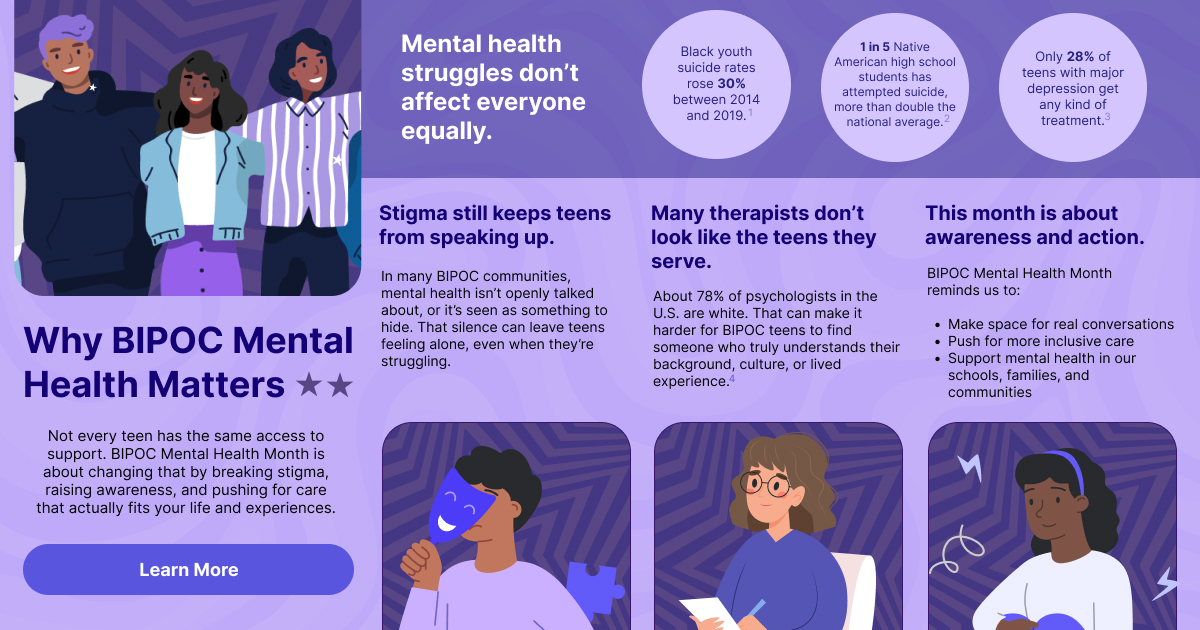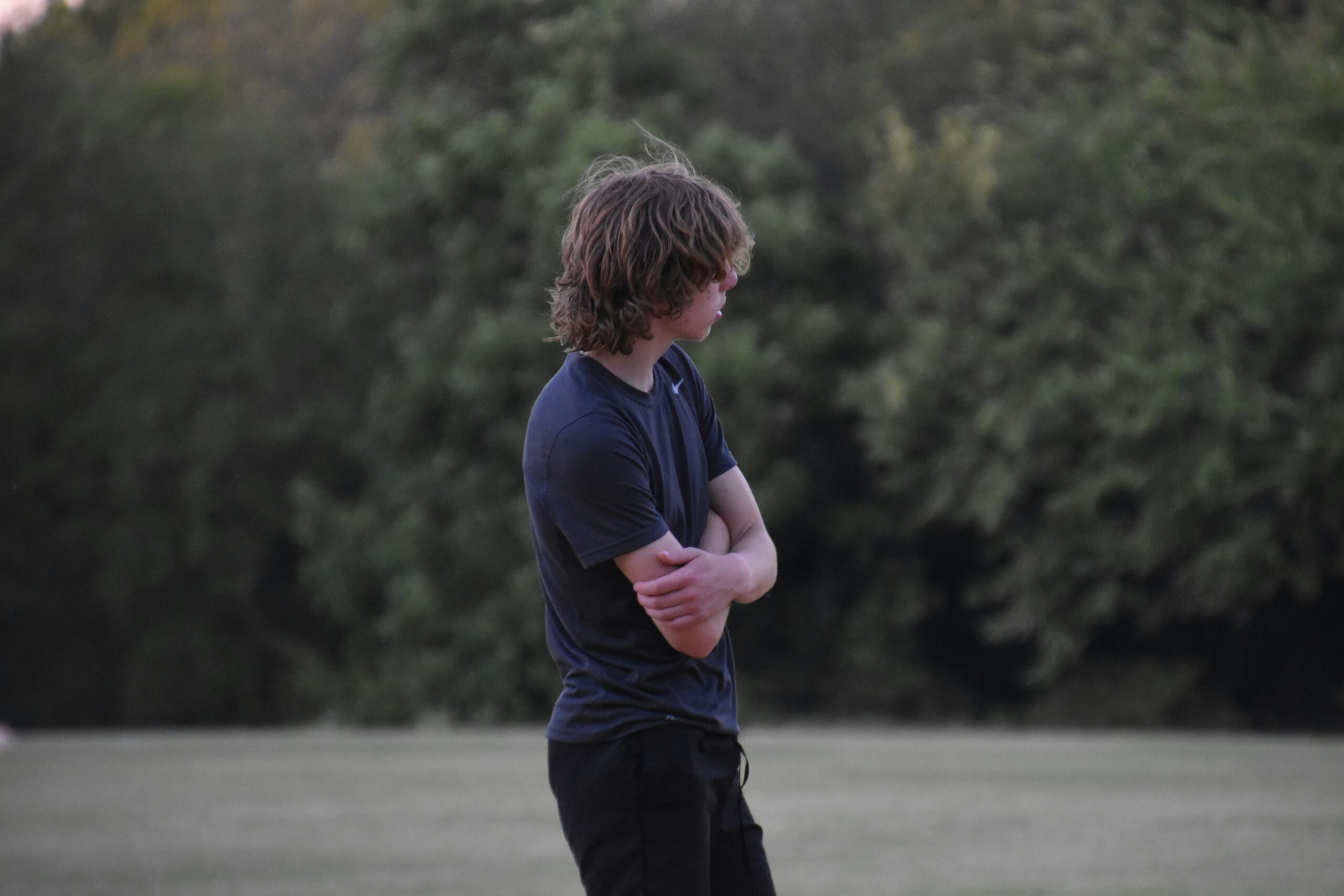The Origin of BIPOC Mental Health Month
Every July, BIPOC Mental Health Month highlights the mental health needs and experiences of people of color, including Black and Indigenous communities. The month encourages both reflection and action, from raising awareness to creating real change in how mental health is understood and supported. Learn more about the origin of BIPOC Mental Health Month and how you can do that with this guide from the team at Ascend.
Honoring Bebe Moore Campbell’s Legacy
BIPOC Mental Health Month began with the advocacy of Bebe Moore Campbell, a writer and mental health champion. After watching loved ones struggle in silence, she called out the gaps in care for communities of color. She co-founded NAMI Urban Los Angeles and spoke out against the barriers so many face, like stigma, misdiagnosis, discrimination, and invisibility.
In 2008, Congress officially named July as Bebe Moore Campbell National Minority Mental Health Awareness Month. Many now refer to it as BIPOC Mental Health Month to reflect a broader, more inclusive understanding of mental health equity.
Why BIPOC Mental Health Deserves Its Own Focus
Mental health challenges can affect anyone, but the experience isn’t equal. BIPOC teens often face added stress from racism, cultural stigma, language barriers, and economic barriers.
Cultural misunderstandings, lack of representation among providers, and fear of being judged can all make it harder to reach out. And if teens are navigating other identities — like being LGBTQ+ — the risks and roadblocks multiply. This is often called double discrimination, and it’s something BIPOC mental health awareness hopes to address.
Mental Health Looks Different Across Cultures
Not every culture views mental health the same way. In some families, struggles are kept private. In others, therapy may not be trusted or even discussed. Cultural norms, religious values, and generational views can all shape how teens see mental health — and whether they feel safe talking about it.
When adults dismiss or downplay mental health, teens might stay silent out of fear or shame. This behavior stigmatizes mental health and makes it even harder to speak about your concerns.
Healing Through Culture
Some forms of healing come from tradition, not therapy offices. Listening to music from your culture, connecting with spiritual practices, cooking a family recipe, or spending time outside can all support mental health. These are examples of what the Mental Health Coalition calls everyday healing, and they matter.
When you engage with your cultural identity in a way that feels meaningful or grounding, you engage in a type of experiential therapy that can help reduce stress, build self-esteem, and strengthen connection.
Bridging the Generational Divide
Older generations may view mental health differently from younger ones. Parents or grandparents might not see therapy as useful, or might see it as shameful. But those differences don’t have to be walls, especially during BIPOC Mental Health Month.
Start by naming your emotions. Say what you’re feeling. Ask someone you trust to listen, even if they don’t fully understand. These conversations can be uncomfortable, but they also create space for healing between generations.
How to Support BIPOC Mental Health Month
There’s no one way to support BIPOC mental health awareness, but here are a few places to start:
- Listen to lived experiences. Believe people when they share their stories.
- Learn from BIPOC voices. Read, watch, or follow creators and organizations doing the work.
- Normalize the conversation. Talk openly about mental health with your peers and family.
- Use your platform. Share educational resources or highlight BIPOC advocates on social media.
- Support financially. Donate to groups like the AAKOMA Project, The Loveland Foundation, the Trevor Project, or Inclusive Therapists.
- Push for change. Write to your local reps about school counselors, accessible care, and community support.
From Awareness to Action
Try taking these three key steps during BIPOC Mental Health Month:
-
Take care of yourself
Explore mental health practices that reflect your culture and needs. Journaling, prayer, movement, or rest all count.
-
Take care of your community
Check in on people. Share what you’ve learned. Create spaces where others feel safe being real.
-
Advocate
Use your voice in your school, workplace, or place of worship. Push for BIPOC mental health awareness, urging that mental health for every culture be treated with the same importance as physical health.
If You’re a BIPOC Teen, Read This
You’re not too sensitive. You’re not weak. You’re human. Whether you’re dealing with anxiety, trauma, family stress, or identity struggles, your pain is valid, and help is out there. This BIPOC Mental Health Month, acknowledge your needs and reach out for support.
Ascend offers residential mental health treatment made for teens like you. We center cultural connection, community, and compassion. You don’t have to explain your whole identity just to be heard. We’re already listening.
Reach out today and 310.388.3713 to learn more about the origin of BIPOC Mental Health Month, or join one of our programs.




